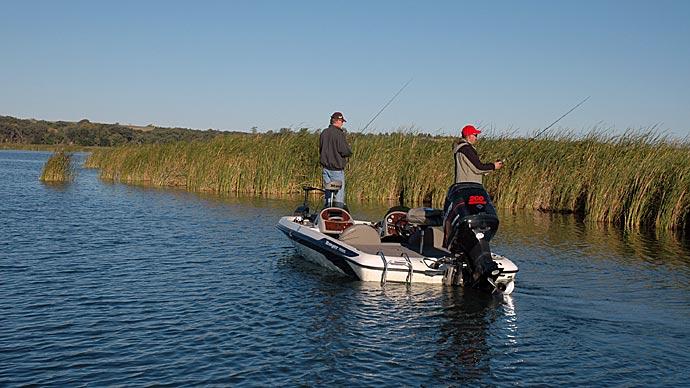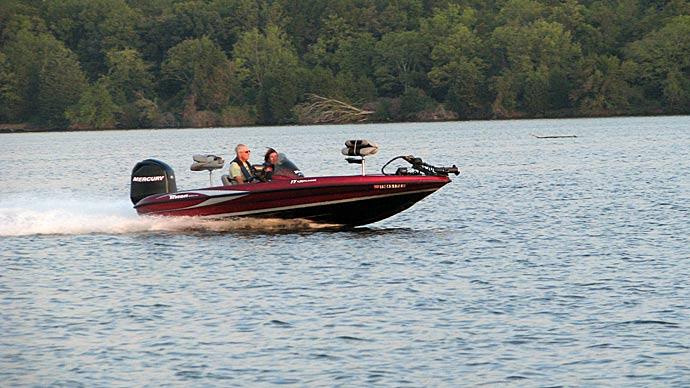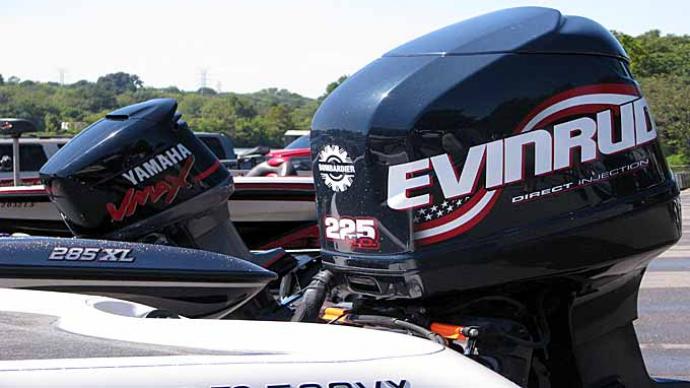
Many fishermen spend countless hours restocking tackle boxes and upgrading rods and reels during winter months. Meanwhile, gremlins are busy booby trapping ol’ Betsy as she sits idle in a garage or winter storage.
Inexplicably, bad things happen to boats ignored over winter. Equipment that worked fine last fall mysteriously goes haywire in the spring.
That’s why it’s so important to include the boat in your preseason planning. Take time to inspect your equipment and begin repairing or replacing those items that were showing signs of wear last season.
Frankly, most boat maintenance should have been performed last fall, especially for anglers living in northern climates where extended cold periods can create additional problems.
If you can afford it, schedule an appointment with a reliable marina. Ask the mechanic to perform routine maintenance and a detailed inspection of all working parts. His business is probably slow this time of year, and he’ll give your boat more attention than he will when business picks up.
If you’re a do-it-yourselfer, create a “to do” list. Here are some suggestions of items that should be on the list.
Outboard: Tune-ups should be done in the fall, especially in colder climates. If you neglected it, at least change the spark plugs and add fuel conditioner to the gas tank. This is also a good time to stock up on outboard motor oil. Buy it by the case and you’ll save money.
If the propeller is bent or nicked badly, get it rebuilt or buy a new one. Order now to avoid shipping delays.
Batteries: If your batteries are a couple of seasons old, it’s time to replace them. If the batteries are in good condition but have been sitting for awhile, charge them. Always keep batteries fully charged and never allow them to sit too long without a charge.
Trailer: Do the bearings need to be inspected or repacked? Is the carpet worn on the bunks? Does the winch need oil or the strap need to be replaced?
Replace bulbs in trailer lights so they’ll burn brightly. Make sure wiring connections are solid and there are no exposed wires that can cause a short. Also, inspect trailer tires for unusual wear. They may need to be replaced, balanced, rotated, or inflated. Check the spare, too.
Boat: If you’re blessed with a warm winter day, wash and wax the boat. Crawl around inside and inspect electrical connections, giving them a shot of corrosion-preventative lubricant. Tighten all screws and bolts.
Look into storage boxes for messes. Mice love to winter in boat storage boxes, and they’ve been known to tear up insulation and chew into wiring.
Inspect bilge and livewell pumps. If they’re old, replace them. Trace transducer cables and look for cuts or bad spots that can distort your signals.
Accessories: Think about what you’ll put in storage compartments. List essentials like rain gear, safety items, tools and the other necessities.
Don’t neglect safety equipment (such as fire extinguishers, life jackets, horns and flares). Replace worn life jackets. Fire extinguishers may need to be recharged.
Investing the effort now will avoid boating problems later, and keep you focused this spring on the business at hand – catching fish.
You can find more articles, quick tips and much more at HankParker.com.




